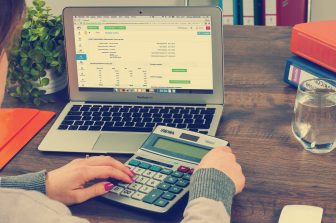 Fewer than 20% of Scottish homeowners paid just over 83% of all residential property purchase tax, according to analysis of the latest statistics by DJ Alexander.
Fewer than 20% of Scottish homeowners paid just over 83% of all residential property purchase tax, according to analysis of the latest statistics by DJ Alexander.
The estate agency, part of the Lomond Group, said that the latest Land and Buildings Transaction Tax (LBTT) data revealed that just 1,790 (19.1% of the total) homebuyers paid £38.5m property purchase tax in July.
This means that the average paid by each of the 1790 homebuyers was £21,508. Within this overall number are 130 people who paid £10.6m on properties which sold for more than £750,000 which amounts to an average of £81,538 per home.
The total tax collected for residential tax in July was £46m from a total of 9,380 purchases which means that individuals buying a home worth more than £325,001 contributed 83.7% of total property revenue in one month.
LBTT continues to be a major revenue earner for the Scottish government raising £62.8m – the highest monthly figure since the tax was introduced in April 2015 – in the month of July alone. Purchases by landlords, property investors, and second homeowners, which are subject to an additional dwelling supplement of 4%, added the additional £16.9m last month.
There has been an increase of 201.7% in the income generated by the tax comparing the first year after April 2015 to the latest 12 months.

David Alexander, the chief executive officer of DJ Alexander Scotland, said: “It is indisputable that house prices have risen substantially since the introduction of the land and buildings transaction tax in the spring of 2015, and this partially accounts for the large increase in Scottish Government revenues. However, it is also abundantly clear that Scots homeowners pay significantly more tax from a lower purchase price than their English counterparts and that, while this is paying dividends for the Scottish government, it is unfair to individuals and may hamper the property market in the future.”
“The long-term implications for maintaining the competitiveness of the Scottish housing market have not yet been tested as the market has been very strong. However, as we face a potential downturn in property prices in the coming year the choice that many people face to locate in Scotland or elsewhere could be negatively impacted by the much higher property transaction taxes north of the border.”
He continued: “It is important to remember that the higher property taxation rates extend to everyone including first time buyers as nothing is paid in England on the first £300,000 purchase price whereas in Scotland LBTT starts at £175,000. For ordinary homebuyers, a 10% charge is applied above £325,001 in Scotland whereas this rate does not begin until £925,001 in England.”
“With the growing disparity in personal taxation between Scotland and the rest of the UK occurring from April 2024 it is essential that action is taken to prevent a major financial divide occurring. If Scotland has the highest personal tax, the highest property tax, and the lowest growth in the UK then this poses serious implications for the future of the Scottish economy.”
Alexander added: “While it is right that those with the greatest means contribute more to the economy it cannot be right that such a financial disparity is dictated simply by geography. A home costing £375,001 is not the preserve of the rich or the privileged. It is the price of a home bought by a nurse, a policeman, a teacher, or an office worker. These are not people with the broadest shoulders but simply hard-working individuals wanting to buy a home who are being taxed much more heavily in Scotland than their counterparts in England. At a time when the Scottish Government is rightly focusing on the cost-of-living crisis surely this is the moment to equalise property buying taxes to keep more money in the pockets of hard-pressed Scots and balance the growing tax disparity between Scotland and the rest of the country.”


Comments are closed.